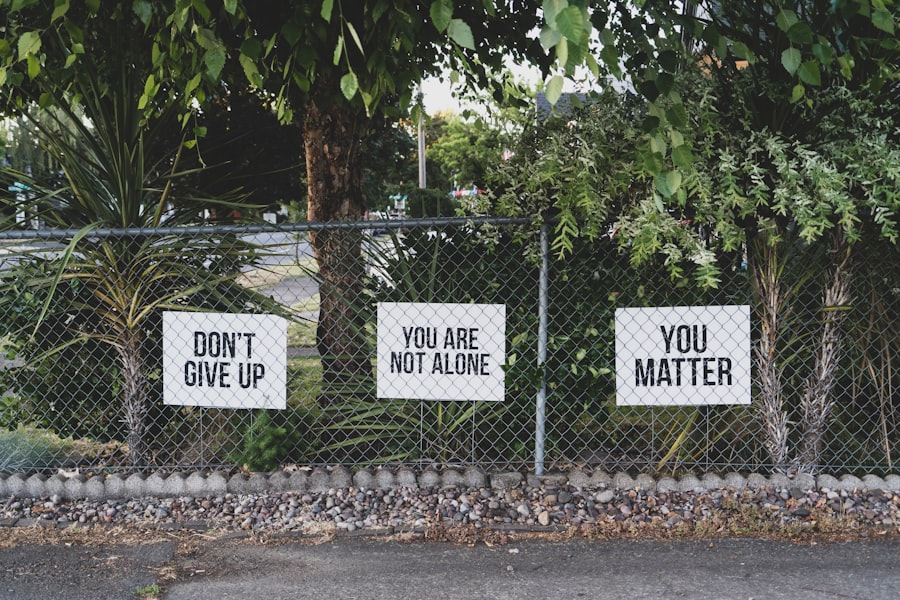
Breaking the Stigma: Powerful Documentary Films that Shed Light on Mental Illness
Mental illness stigma is a pervasive issue that affects millions of people worldwide. It can lead to discrimination, isolation, and a lack of understanding and empathy towards those who are suffering. However, documentary films have emerged as a powerful tool in breaking down these barriers and promoting mental health awareness and empathy.
Documentaries have the ability to capture real stories and experiences, providing an intimate and authentic look into the lives of individuals living with mental illness. By showcasing these stories, documentaries can challenge stereotypes, debunk myths, and humanize those who are often marginalized or misunderstood. They have the power to educate, inspire, and create a sense of empathy and connection among viewers.
Key Takeaways
- Documentary films can break the stigma surrounding mental illness.
- Mental health documentaries are a powerful tool for raising awareness and understanding.
- Depicting real stories and experiences is crucial in documentaries about mental illness.
- Documentaries can shed light on different types of mental health conditions and address misconceptions and myths.
- Positive and empowering narratives in mental health documentaries can have a significant impact.
Mental Health Documentaries: A Tool for Raising Awareness and Understanding
Documentaries have proven to be an effective tool for raising awareness and understanding of mental health issues. Through compelling storytelling and visual imagery, they can engage viewers on an emotional level, allowing them to connect with the experiences of those living with mental illness.
One example of a successful mental health documentary is “The S Word,” which explores the topic of suicide. The film follows a diverse group of individuals who have been personally affected by suicide, including survivors, family members, and advocates. By sharing their stories, the documentary sheds light on the complex factors that contribute to suicide and challenges the stigma surrounding it.
Another powerful documentary is “Unstuck: An OCD Kids Movie,” which focuses on children living with obsessive-compulsive disorder (OCD). The film follows several young individuals as they navigate their daily lives with OCD, highlighting the challenges they face and the resilience they demonstrate. By giving a voice to these children, the documentary helps to raise awareness about OCD and promote understanding and empathy.
Documentaries about Mental Illness: The Importance of Depicting Real Stories and Experiences
One of the key strengths of documentaries about mental illness is their ability to depict real stories and experiences. By showcasing the lived experiences of individuals with mental illness, these documentaries can provide a more accurate and nuanced portrayal of these conditions.
This is important because mental illness is often misunderstood and stigmatized due to misconceptions and stereotypes. By presenting real stories, documentaries can challenge these misconceptions and humanize those who are living with mental illness. This can help to break down barriers and foster empathy and understanding among viewers.
For example, the documentary “Touched with Fire” explores the lives of individuals living with bipolar disorder. The film features interviews with people who have been diagnosed with bipolar disorder, as well as their family members and healthcare professionals. By sharing their personal stories, the documentary helps to dispel myths and misconceptions about bipolar disorder and provides a more accurate portrayal of the condition.
Mental Health Disorders Documentary: Shedding Light on Different Types of Mental Health Conditions
| Types of Mental Health Conditions | Prevalence | Symptoms | Treatment Options |
|---|---|---|---|
| Depression | 264 million people worldwide | Feelings of sadness, hopelessness, loss of interest in activities | Therapy, medication, lifestyle changes |
| Anxiety | 284 million people worldwide | Excessive worry, fear, panic attacks | Therapy, medication, lifestyle changes |
| Bipolar Disorder | Approximately 60 million people worldwide | Extreme mood swings, manic episodes, depressive episodes | Medication, therapy, lifestyle changes |
| Schizophrenia | Approximately 20 million people worldwide | Delusions, hallucinations, disordered thinking | Medication, therapy, lifestyle changes |
| Eating Disorders | Approximately 70 million people worldwide | Obsessive thoughts about food, body image, weight | Therapy, medication, nutritional counseling |
Documentaries have the power to shed light on different types of mental health conditions, increasing understanding and awareness. There are numerous mental health disorders that can be explored in documentaries, each with its own unique challenges and experiences.
For example, “The Weight of Gold” is a documentary that focuses on the mental health struggles faced by Olympic athletes. The film explores the pressures and expectations placed on these athletes, as well as the impact it has on their mental well-being. By highlighting the specific challenges faced by this population, the documentary helps to raise awareness about the mental health issues that can arise in high-performance environments.
Another example is “Life, Animated,” which tells the story of Owen Suskind, a young man with autism. The documentary follows Owen as he navigates his daily life and uses Disney animated films as a way to communicate and understand the world around him. By showcasing Owen’s journey, the film helps to shed light on autism and challenges stereotypes about individuals on the autism spectrum.
Documentaries about Mental Disorders: The Role of Education in Addressing Misconceptions and Myths
Education plays a crucial role in addressing misconceptions and myths about mental health disorders. Documentaries can be a powerful educational tool, providing viewers with accurate information and challenging commonly held beliefs.
One example of a documentary that serves as an educational tool is “The Mask You Live In,” which explores the impact of toxic masculinity on boys and men. The film examines how societal expectations and stereotypes can contribute to mental health issues such as depression, anxiety, and aggression. By providing viewers with a deeper understanding of these issues, the documentary helps to promote empathy and encourages individuals to challenge harmful gender norms.
Another example is “Healing Voices,” which focuses on the experiences of individuals who have been diagnosed with mental health conditions such as schizophrenia, bipolar disorder, and depression. The film challenges the notion that these conditions are solely biological in nature and highlights the importance of social and environmental factors in mental health. By presenting a more holistic view of mental health, the documentary encourages viewers to think critically about the causes and treatment of mental illness.
Out of the Shadows Documentary Schizophrenia: A Personal Account of Living with Schizophrenia

One powerful case study of a documentary that explores schizophrenia is “Out of the Shadows.” This film follows the journey of three individuals living with schizophrenia as they navigate their daily lives and work towards recovery.
The documentary provides an intimate look into the experiences of these individuals, showcasing their struggles, triumphs, and resilience. By sharing their personal stories, “Out of the Shadows” helps to humanize those living with schizophrenia and challenge stereotypes and misconceptions about the condition.
The impact of personal accounts in mental health documentaries cannot be overstated. Hearing directly from individuals who have experienced mental illness allows viewers to gain a deeper understanding of their experiences and challenges. It creates a sense of empathy and connection, breaking down the barriers that stigma often creates.
Good Mental Health Documentaries: The Impact of Positive and Empowering Narratives
Positive and empowering narratives can have a profound impact on mental health documentaries. By highlighting stories of resilience, recovery, and hope, these documentaries can inspire and uplift viewers, while also challenging negative stereotypes and misconceptions.
One example of a documentary that uses a positive and empowering narrative is “Happy.” This film explores the science behind happiness and features interviews with individuals from around the world who have found happiness in various ways. By showcasing these stories, the documentary promotes the idea that mental well-being is achievable and encourages viewers to prioritize their own happiness.
Another example is “The Anonymous People,” which focuses on the experiences of individuals in recovery from addiction. The film highlights the stories of people who have overcome addiction and are now leading fulfilling lives. By sharing these stories, the documentary challenges the stigma surrounding addiction and offers hope to those who may be struggling.
Documentaries on Depression: Exploring the Complexities of Mental Health and Well-being
Depression is a complex mental health condition that affects millions of people worldwide. Documentaries can play a crucial role in exploring the complexities of depression and increasing understanding among viewers.
One example of a documentary that explores depression is “The Bridge.” This film focuses on the Golden Gate Bridge in San Francisco, which has become a notorious site for suicide attempts. The documentary follows several individuals who have been affected by suicide, including survivors, family members, and witnesses. By examining the factors that contribute to suicide and highlighting the impact it has on individuals and communities, “The Bridge” helps to raise awareness about depression and promote understanding.
Another example is “It’s Kind of a Funny Story,” which is based on a novel by Ned Vizzini. The film tells the story of a teenager named Craig who is struggling with depression and checks himself into a psychiatric hospital. By depicting Craig’s journey towards recovery, the film provides a realistic portrayal of depression and offers hope to those who may be experiencing similar challenges.
Mental Health and Society: The Need for More Conversations and Advocacy
Mental health is a topic that is often stigmatized and misunderstood in society. There is a need for more conversations and advocacy to promote understanding, empathy, and support for those living with mental illness. Documentaries can play a crucial role in facilitating these conversations and increasing advocacy.
By presenting real stories and experiences, documentaries can help to humanize mental illness and challenge the stereotypes and misconceptions that often surround it. They can provide a platform for individuals to share their experiences and perspectives, fostering empathy and understanding among viewers.
Documentaries can also serve as a catalyst for change by raising awareness about the need for improved mental health services, policies, and support systems. They can inspire viewers to take action, whether it be through volunteering, advocating for change, or supporting organizations that provide mental health resources.
The Power of Documentary Films in Promoting Mental Health Awareness and Empathy
In conclusion, documentary films have emerged as a powerful tool in breaking the stigma of mental illness and promoting mental health awareness and empathy. By depicting real stories and experiences, documentaries can challenge stereotypes, debunk myths, and humanize those who are often marginalized or misunderstood.
Through compelling storytelling and visual imagery, documentaries can engage viewers on an emotional level, allowing them to connect with the experiences of those living with mental illness. They have the power to educate, inspire, and create a sense of empathy and connection among viewers.
Documentaries can shed light on different types of mental health conditions, increase understanding, address misconceptions and myths, explore the complexities of mental health and well-being, promote conversations and advocacy, and provide positive and empowering narratives.
In a society where mental illness is often stigmatized and misunderstood, documentaries have the ability to create change. They can challenge the status quo, promote understanding and empathy, and inspire individuals to take action. By harnessing the power of documentary films, we can break down barriers, promote mental health awareness, and create a more compassionate and inclusive society.
If you’re interested in exploring the powerful intersection of documentary films and mental illness, you won’t want to miss the thought-provoking article “Unveiling the Unseen: Documentaries Shedding Light on Mental Illness” by Wave Magnets. This insightful piece delves into the impact of documentary storytelling on raising awareness and understanding of mental health issues. Discover how these films provide a platform for personal narratives, challenge stigmas, and inspire empathy. To read more, visit https://wavemagnets.com/sample-page/.
FAQs
What are documentary films about mental illness?
Documentary films about mental illness are non-fiction films that explore various aspects of mental health and mental illness. These films aim to raise awareness, reduce stigma, and provide education about mental health issues.
What are some examples of documentary films about mental illness?
Some examples of documentary films about mental illness include “The S Word,” “Crazywise,” “The Devil and Daniel Johnston,” “The Bridge,” and “Madness in the Fast Lane.”
What is the purpose of documentary films about mental illness?
The purpose of documentary films about mental illness is to increase understanding and awareness of mental health issues, reduce stigma, and provide education about mental illness. These films can also provide a platform for individuals to share their personal experiences with mental illness.
Who can benefit from watching documentary films about mental illness?
Anyone can benefit from watching documentary films about mental illness. These films can be particularly helpful for individuals who have experienced mental health issues themselves, as well as for family members, friends, and caregivers of individuals with mental illness. Mental health professionals can also benefit from watching these films as a way to gain insight into the experiences of their patients.
Are documentary films about mental illness accurate?
Documentary films about mental illness can vary in their accuracy and the perspectives they present. It is important to approach these films critically and to seek out additional resources and information to gain a more complete understanding of mental health issues.
Where can I find documentary films about mental illness?
Documentary films about mental illness can be found on streaming platforms such as Netflix, Amazon Prime, and Hulu, as well as on DVD and Blu-ray. They may also be available for rent or purchase on digital platforms such as iTunes and Google Play.















